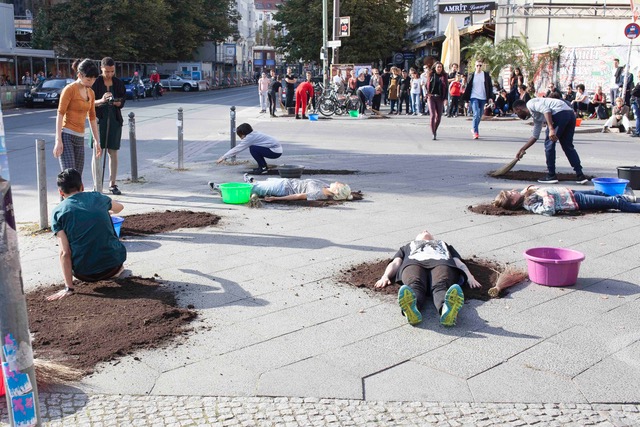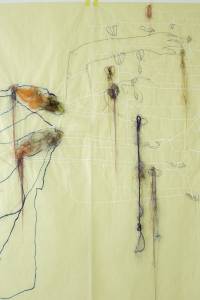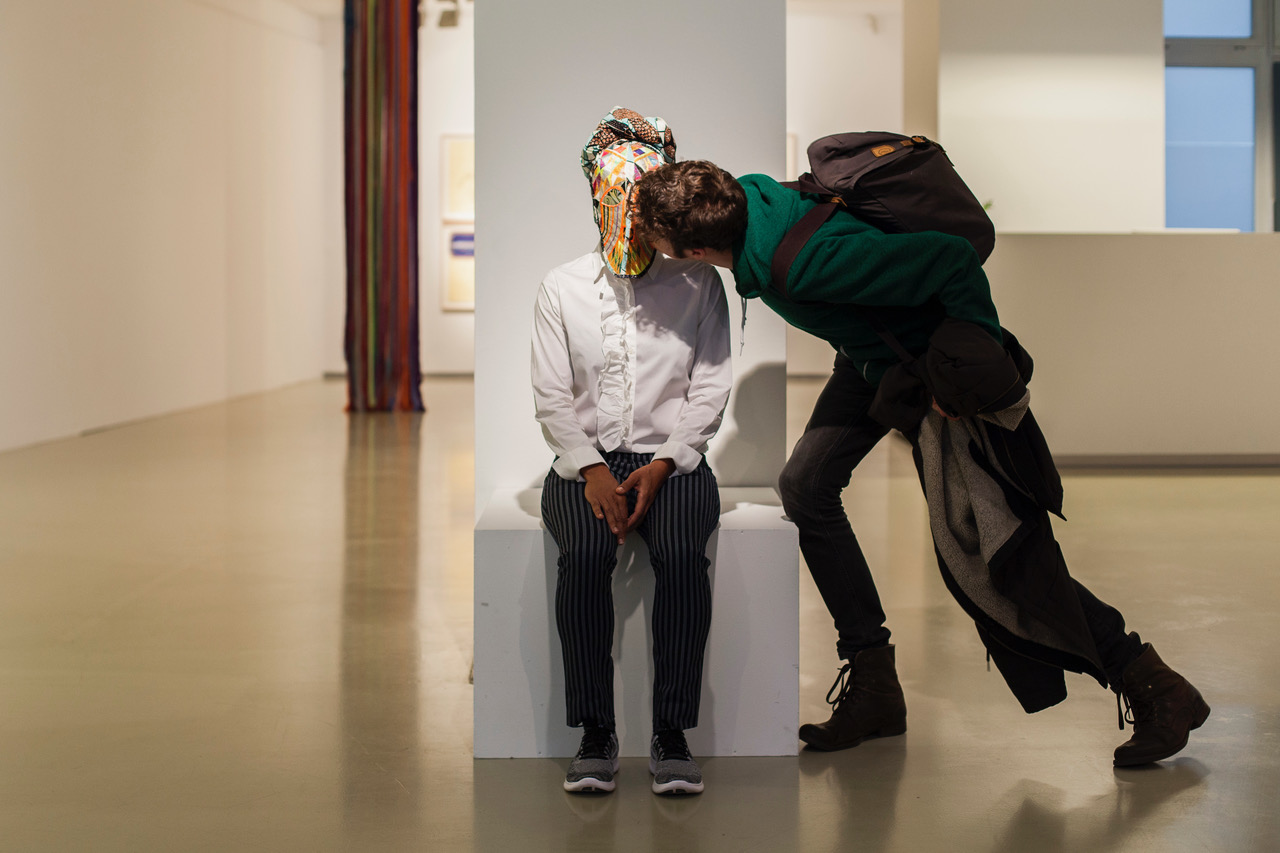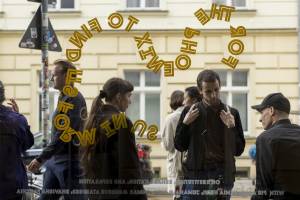In “Every Mask I Ever Loved” Wura-Natasha Ogunji presents a series of newly commissioned drawings and performances – including re-creations of her performances “Sweep”, “The Kissing Mask”, and “If I loved you” – thereby continuing her exploration of the presence of women in both public and private space. Alongside the programme of performances, the exhibition consists of a display of works – textile masks and video – that are instrumental within the performances or act as echoes of it. Ogunji’s practice – through drawings (comprised of hand-stitched figures on architectural trace paper), video and performance art – explores physicality, endurance and gestures of the body; our relationship to geographical, architectural and filmic space; as well as memory and history. Many of her performances highlight the relationship between the body and social power and presence, investigating how women, in particular, occupy space through both epic and ordinary actions. Splitting her time between Austin and Lagos for many years, Ogunji was deeply influenced by her experience of living between two countries and, more recently, of residing in Lagos. “Sweep” was originally performed during Ogunji’s first visit to Nigeria. As she explains, she wanted the land to remember her presence. She has since performed “Sweep” in different contexts and countries, deepening her thinking about the presence of women within those societies, and exploring the notion of homeland and diasporic identity. “The Kissing Mask” and “If I loved you” are ways to experiment with notions of self-consciousness, intimacy and privacy, and what one could call “the limits of empathy and identification.” (Kathy-Ann Tan, 2016). Being the third chapter, dedicated to feminisms, of Untie to Tie – On Colonial Legacies and Contemporary Societies, the accompanying programme of the exhibition is thought of as an opportunity to remember that there are “striking parallels between sexual violence against individual women and neo-colonial violence against people and nations” (Angela Davis, 1985). It also wishes to question the notion of women’s rights in a postcolonial context; these being still very much defined only by some. “Every Mask I Ever Loved” presents a moment to re-think feminisms transnationally, and acts as a call, as explored by Ogunji, to consider geographic presence and specificity, and individual narratives.
Wura-Natasha Ogunji: Sweep





